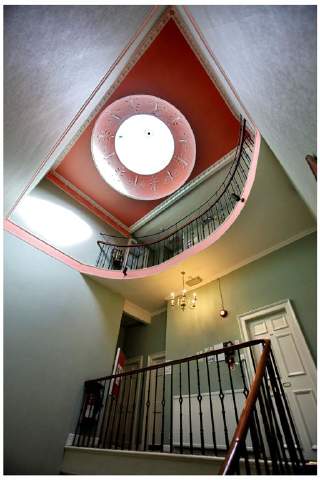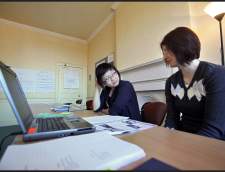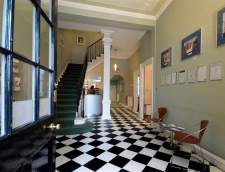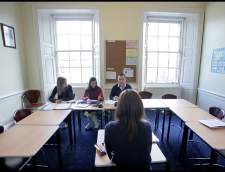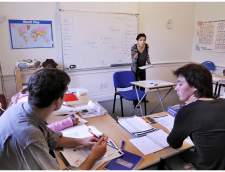Course description
Many employers and universities now require evidence of your English level. Cambridge Assessment English exams offer an important qualification for life; perfect for developing your confidence and enhancing your CV.
Cambridge Assessment English exam courses include a place on the next available exam, guidance on exam skills and strategies, essential language development, individual feedback, weekly individual coaching sessions and timed exam practice.
Course overview
Students train to gain experience and acquire the skills necessary to achieve a passing grade in their C1 Advanced (CAE) exam.
Teachers coach students to achieve to the maximum of their potential, and set milestones and goals for each student, with constant evaluation. This sets the pace for each learner to surpass their academic expectations and achieve more than they thought possible.
Students sit rehearsal tests under exam conditions. These are repeated as required to build confidence and familiarity with the exam.
Small class sizes also allow for a large amount of individual coaching, which provides students with the security of the knowledge that they are as prepared as possible for their exam, and with confidence and familiarity in the exam format.
All students who successfully complete this course are eligible for a Course Certificate.
Homework tasks are set daily to allow learners to reflect on and consolidate what they have learned in the day, as well as prepare for the next day.
Morning lessons are devoted to developing the skills and linguistic abilities that are required to not only achieve success in the C1 Advanced (CAE) exam, but that will also enable the student to operate in English with ease across cultural and linguistic borders. These lessons and workshops allow students to develop linguistic flair, as well as key 21st century skills such as critical thinking, creativity, resilience, and leadership.
The afternoon lessons focus on how to apply these skills to exam tasks in order to achieve a high grade. Students are equipped with strategies that allow them to display their skills to the very best of their ability in all the papers of the C1 Advanced (CAE).
Learners are coached in the content of the exam, and strategies for understanding and navigating the test questions are explored and practised.
Tutors set assignments for homework, and mock tests, taken under exam conditions, allow both tutor and student to monitor progress, as well as highlighting areas and tasks which may require a highly targeted focus or more intensive work.
Course Content
Flexibility for Use of English
Students develop flexibility in their use of the English language by building their lexical and grammatical range. There is a strong focus on accuracy. The skills that are honed in this module are the foundation stones for the modules which follow it, as they equip the student with the language needed to express themselves clearly, accurately, eloquently, and with linguistic flair.
Confidence for the spoken paper
Students build the skills required for face-to-face interactions, with a focus on successful communication and articulation of concepts, effective discourse management, clear and effective pronunciation, and flexible and accurate use of structures and vocabulary. Developing the use of compensation strategies also allows students to maintain their confidence and communicative competence when faced with linguistic obstacles.
Strategies for effective reading
In this module, students are exposed to, and familiarised with, a variety of text types. Skills developed include: speed reading, understanding text structure, critical analysis, and determining an author’s position. The range of texts used includes newspaper articles, fiction, magazine articles, and non-fiction prose.
Listening skills
Preparation for the listening paper helps students build the skills to be able to follow and understand a range of spoken materials. These include radio broadcasts, interviews, presentations and talks, as well as everyday interactions. Materials such as TED talks and BBC broadcasts are used to develop the required skills, including: working out the meaning of unknown words, following the structure of speech, and summarising a talk.
Written eloquence
Students practise writing different text types, including essays, reports, articles and letters. They are trained to understand the differences between these types of writing, and to use their linguistic skills to reach their communicative objective in any style. There is a focus on how to structure a text clearly and logically, as well as planning, time-management, precision and clarity.
Expected outcomes
By the end of this course, the student is expected to be able to
Manage discourse effectively in face-to-face interactions
Articulate ideas and concepts clearly in both spoken and written English
Demonstrate flexibility in their use of language
Follow and comprehend a variety of written and spoken text types
Structure a piece of long form writing in a number of styles
Speak confidently with others in both one-to-one and two-to-one situations
Class schedule may change depending on availability and season.






